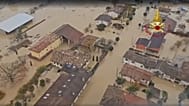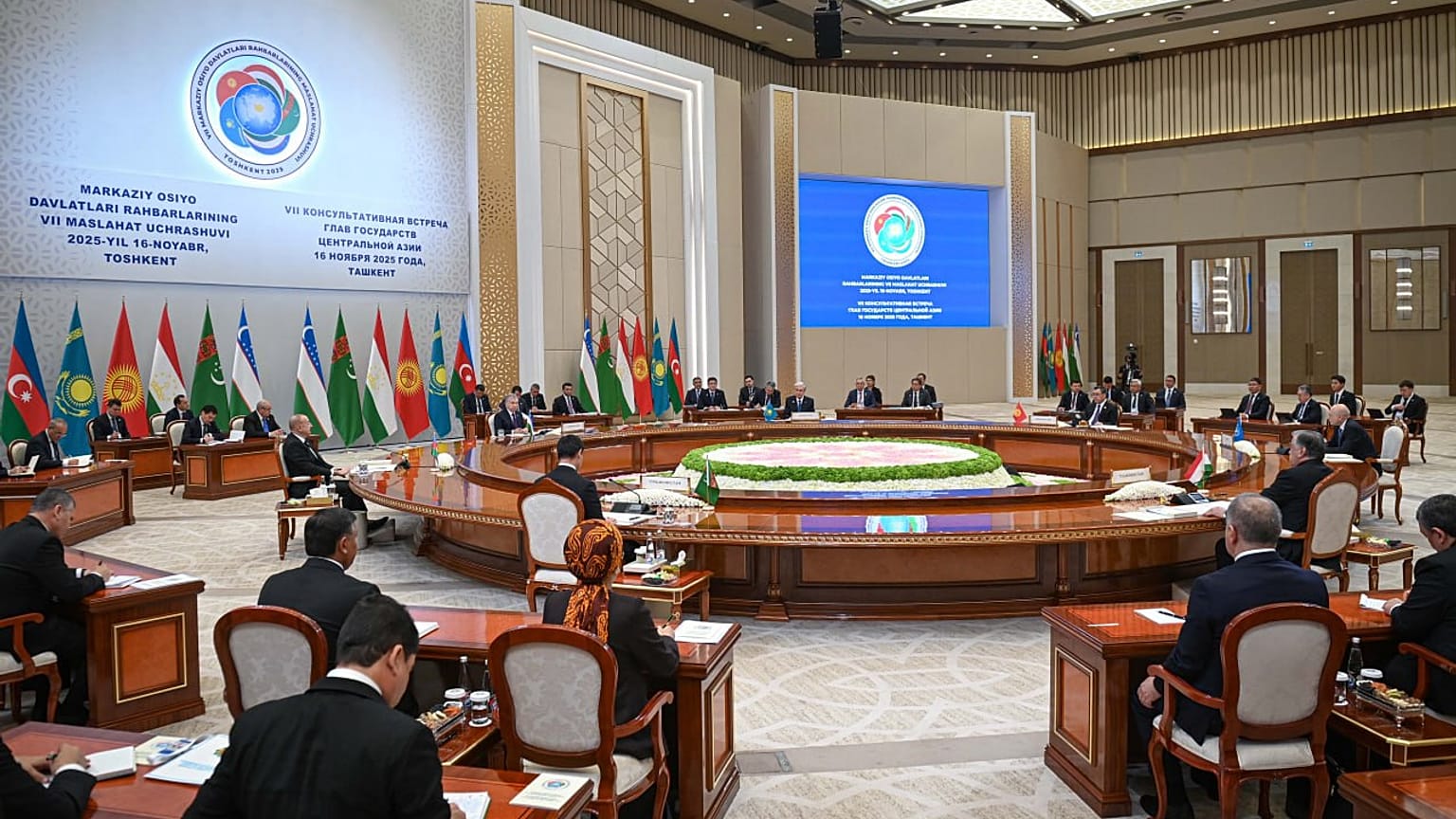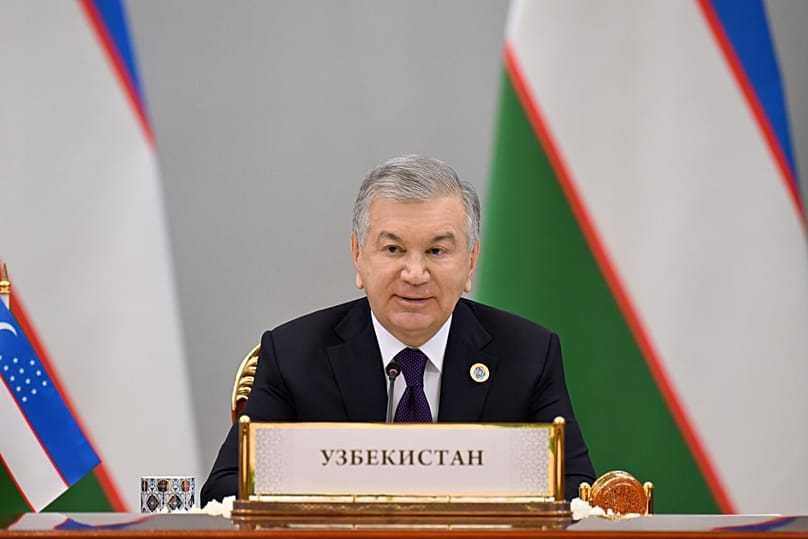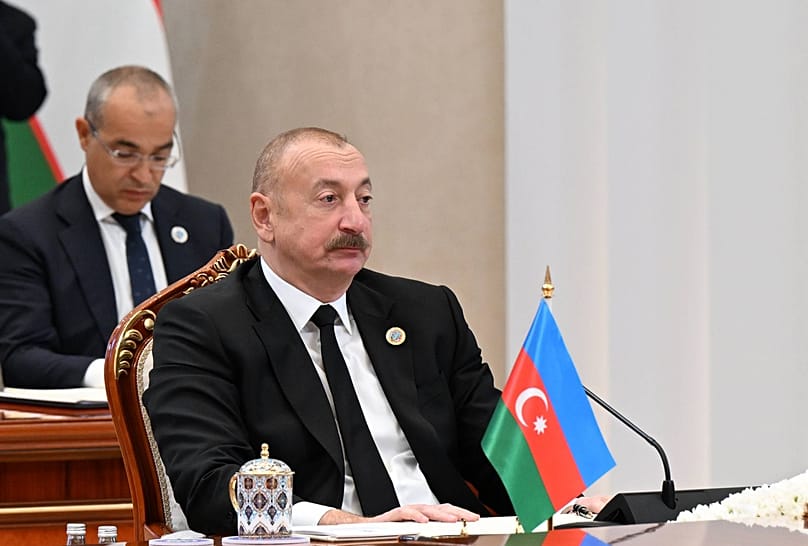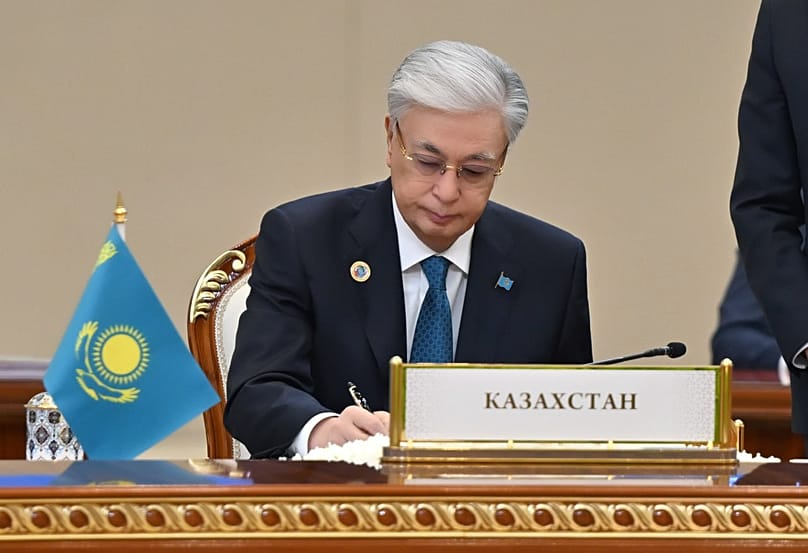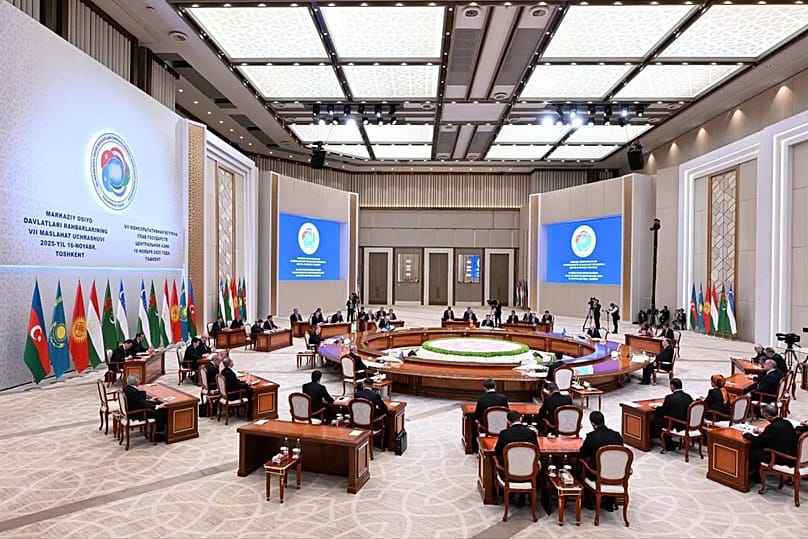Central Asian leaders gathered in Uzbekistan's capital for the Seventh Consultative Meeting, emphasizing stronger political dialogue, economic integration, and collective security.
Central Asian leaders unanimously approved Azerbaijan's accession to their consultative format as a full member at the Seventh Consultative Meeting of Heads of State in Tashkent on Saturday, marking what officials described as a historic expansion of regional cooperation.
Leaders of Uzbekistan, Azerbaijan, Kazakhstan, Kyrgyzstan, Tajikistan and Turkmenistan said the decision officially brings the South Caucasus into the Central Asian cooperation framework, creating a broader space of connectivity stretching from the Caspian to world markets.
Azerbaijan's participation will give the format new momentum, expanding trade, investment, cultural ties and coordinated development across two strategically important regions, according to officials.
The Tashkent meeting focused on strengthening institutional foundations of regional cooperation, with proposals to transform the current consultative system into a long-term strategic platform called the "Community of Central Asia," complete with a rotating Secretariat, a Council of Elders and enhanced roles for national coordinators.
Uzbekistan's President Shavkat Mirziyoyev delivered seven key proposals at the meeting, including plans for a 2035 regional trade programme, a common investment space, joint work on major transport corridors including the China-Kyrgyzstan-Uzbekistan railway and the Trans-Afghan route, and adoption of a regional security concept.
He proposed a Decade for Rational Water Use from 2026 to 2036 and a regional water excellence centre, along with annual congresses on spiritual heritage and new scientific initiatives.
Mirziyoyev said regional integration had led to borders reopening, disputes being resolved and regional trade reaching $10.7 billion (€9.20 billion) with 17 per cent growth in investment.
He congratulated Turkmenistan on taking over the chairmanship of the new Central Asia-Azerbaijan format.
Azerbaijan's President Ilham Aliyev said relations have evolved into a strategic partnership, strengthened by active political dialogue and growing economic, cultural and humanitarian cooperation.
Aliyev noted Azerbaijan's expanding role in regional connectivity, citing major infrastructure projects, rapid growth of transit through the Middle Corridor and new initiatives such as the Digital Silk Road and Caspian energy links.
He praised Central Asian countries for their support "in rebuilding Azerbaijan's liberated territories" and said shared geopolitical and geo-economic interests now unite the region.
Kazakh President Kassym-Jomart Tokayev called for stronger regional coordination on water security, transport connectivity and economic integration.
He proposed a Central Asian Framework Convention on Water Use, a unified cargo-tracking system and a comprehensive transport strategy to unlock the region's transit potential.
Tokayev also emphasised cooperation in rare earth metals, artificial intelligence and tourism, while welcoming Azerbaijan's accession to the format.
The summit concluded with leaders signing documents including a joint statement outlining shared priorities, endorsement of Azerbaijan's accession, support for Kyrgyzstan's candidacy for the UN Security Council for 2027-2028, and approval of the Concept of Regional Security, Stability and Sustainable Development in Central Asia.
They also approved a Catalogue of Security Risks and preventive measures for 2026-2028.
On Saturday afternoon, the presidents visited the Centre for Islamic Civilisation in Tashkent, which houses unique artefacts and research facilities dedicated to preserving and popularising the heritage of Islamic civilisation.
They visited the Holy Quran Hall, where the Mushaf Usman, one of the greatest spiritual relics of the Islamic world, is kept, as well as sections on pre-Islamic civilisations and Islamic renaissance periods.


